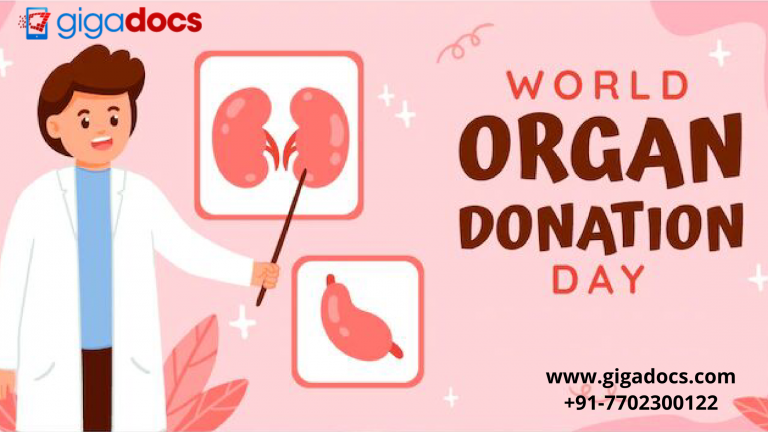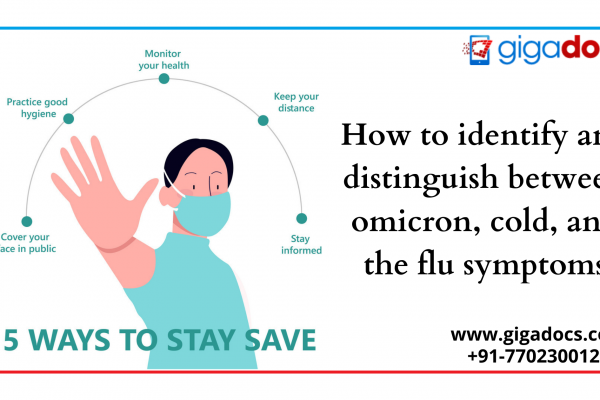Gifting someone a heartbeat, the gift of sight, and the opportunity to walk again is priceless. Organ Donation is the greatest gift and allows recipients to reclaim their most important moments in life.
Do you know?
A whopping 20+ people die every day just waiting for an organ transplant?
When you donate your organs, you can make a positive difference to other life.
This World Organ Donation Day (August 13) informs us about organ vocation, which organs can be donated, and future health problems to be aware of in relation to organ donation.
Organ Donation: What is it and why is it important?
Organ donation is the surgical removal of organs or tissue from one person to be implanted in another. Why is it required? Organ donation is needed when the recipient’s organ fails or is damaged due to a disease or an injury. Unfortunately, the ratio of Donors when compared to expecting recipients is extremely lop-sided as the number of Donors are overwhelming low compared to the recipients.
Which Organs Can Be Donated?
Organ donation can mean the difference between life and death for recipients and their families awaiting transplants. Medically, you can donate the following organs:
- Intestine.
- Corneas.
- Bone marrow.
- Middle ear.
- Skin.
- Bone.
- Liver.
- Kidney.
- Pancreas.
- Heart.
- Lung.
- Heart valves.
- Connective tissue.
- Vascularized composite allografts like blood vessels, nerves, connective tissue, skin, uterus, bone, and muscles.
Most tissue and organ donations occur after someone has been announced brain dead. While some organs can be donated even when the donor is alive. Organ donors of all ages and backgrounds are welcome, while donors under 18 need their parent’s or guardian’s approval for an organ donation. Signing a donor card explains your desire to be a donor if you are 18 or older. Let’s read more about the most commonly donated organs here-
Most Commonly Donated Organs
- Heart: The heart is the hardest-working muscle, beating 60-80 times per minute and pumping blood to every body part. Heart diseases that necessitate a heart transplant include myocarditis, cardiomyopathy, and heart failure.
- Kidneys: Do you know the Kidney is the most transplanted organ? The kidneys are in charge of filtering the body waste and balancing your body fluids. Kidney recipient donors include people with cystic kidney disease, high blood pressure, and diabetes.
- Liver: The liver is home to over a hundred bodily functions, including breaking harmful substances in the blood, storing sugars, fats and vitals for body function, and production of bile to help digestion. Did you know a healthy liver can be split into two parts which can save two people’s lives?
- Lungs: The lungs perform an essential bodily function by extracting oxygen and expending carbon dioxide. Cystic fibrosis, pulmonary hypertension, emphysema, and pulmonary edema are all conditions that frequently necessitate a lung transplant. By donating a lung, one donor can save the lives of two people.
- Pancreas: The pancreas works to regulate insulin. The pancreas produces insulin, a hormone that aids the body’s use of glucose (sugar) for energy, and enzymes that aid digestion by breaking down fat, protein, and carbohydrates.
- Intestines: The intestines are responsible for digesting food and absorbing nutrients into the bloodstream. You may require an intestine transplant if you have twisted or blocked intestines or short-gut syndrome.
Who is eligible to Donate an Organ?
- Anyone of any age can become an organ donor. Anyone under the age of 18 must have the permission of a parent or guardian. A medical evaluation will determine which organs can be donated after death.
- Cancer, HIV, diabetes, kidney disease, or heart disease can prevent you from donating as a living donor.
- Organ transplant is easier if the donor and recipient are a good match. The transplant team will test to see if your blood and tissue types are compatible with the other recipients.
- Some medical centers will transplant an organ even if the blood and tissue types of the donor and recipient do not match. In that case, the recipient will be subjected to special treatments to prevent their body from rejecting the donor organ.
Why should you consider organ donation?
Another person is added to the organ waiting list every nine minutes. Patients awaiting transplants gain hope and life through organ and tissue donation. Simply put, registering for organ donation is a lifesaving gift. While you may never see the impact of your personal decision, it will be seen and felt by your friends, family, community, and even strangers. You can leave a legacy of love and healing as an organ and tissue donor.
Will you have health problems in the future if you donate an organ?
The answer is no, while few organs can be donated entirely or partially without causing long-term health problems like you can donate your entire kidney or a portion of your pancreas, intestine, liver, or lung. Your body will compensate for the organ or organ part that is missing. In terms of kidneys, some research suggests that kidney donors are slightly more likely to develop high blood pressure, preeclampsia, and chronic kidney disease in the long run.
Recent Advances in Organ Donation
Researchers successfully changed the blood type in a game-changing discovery. The advancement could increase the supply of kidneys available for transplant, particularly among minority ethnic groups where matching is more complicated.
A kidney transplant from someone with blood type A cannot be transplanted to someone with blood type B, and vice versa. However, changing the blood type to the universal O would allow more transplants for people of any blood type.
Gigadocs and Organ Donation
Gigadocs tele-healthcare app supports World Organ Donation Day and offers digital consultation for chronic and non-chronic diseases. Download the Gigadocs app for digital consultation for you and your family-
To consult, download the Gigadocs App from-
- IOS App – apple.co/2W2iG4V
- Android App – bit.ly/33AQoR




